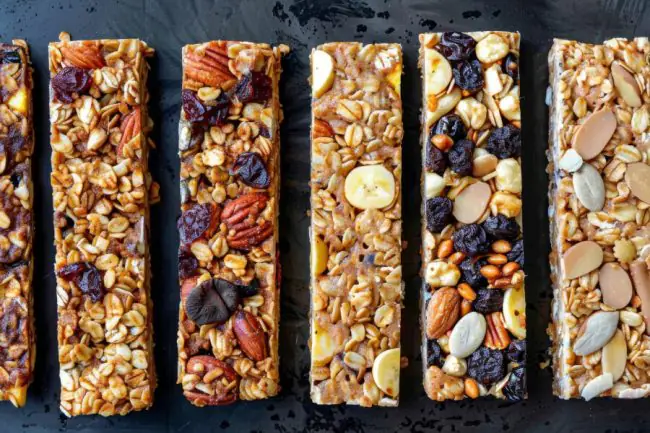Pregnancy is an exciting and transformative time, but it also brings new responsibilities, especially when it comes to nutrition in pregnancy.
What you eat during this period plays a vital role in your baby’s growth and development, while also supporting your own health.
Importance of Nutrition in Pregnancy
Maintaining a healthy diet during pregnancy is important because your nutritional needs increase.
Eating the right foods ensures that both you and your baby get the essential nutrients required for optimal growth and development.
Impact of Maternal Nutrition on Fetal Development
The food you eat directly impacts fetal development. During pregnancy, your baby relies on you for all their nutritional needs.
If your diet lacks certain nutrients, it can affect your baby’s growth.
For example, not getting enough folic acid can increase the risk of neural tube defects, and inadequate iron levels can lead to anemia, which can affect both mother and baby.
Benefits of a Balanced Diet for Both Mother and Baby
A balanced diet rich in whole foods supports both your health and your baby’s. It can help you manage weight gain, boost energy levels, and reduce pregnancy symptoms like morning sickness.
Eating a variety of fruits, vegetables, lean proteins, and whole grains promotes fetal development, reduces the risk of birth defects, and prepares your body for labor and delivery.
Key Nutrients for Pregnant Women
Your body requires specific nutrients to support both your health and your baby’s development. Let’s explore the most important ones and why they matter.
The Role of Folic Acid in Preventing Birth Defects
Folic acid is a crucial B vitamin that helps prevent neural tube defects, which affect the brain and spine. Experts recommend taking at least 400 mcg of folic acid daily before conception and during the first trimester. Foods rich in folic acid include leafy greens, oranges, and fortified cereals.
Importance of Iron for Healthy Blood Production
Iron helps your body produce more blood to supply oxygen to your baby. Iron deficiency can lead to anemia, which causes fatigue and complications during pregnancy. To boost your iron levels, include foods like lean red meat, spinach, and legumes in your diet.
Benefits of Vitamin D for Bone Health
Vitamin D is essential for calcium absorption, helping your baby develop strong bones and teeth. Sunlight is a natural source of vitamin D, but you can also find it in fortified dairy products, fish, and egg yolks.
Omega-3 Fatty Acids for Brain Development
Omega-3 fatty acids, particularly DHA, are essential for the development of your baby’s brain and eyes.
Fatty fish like salmon, chia seeds, and walnuts are excellent sources. If you’re not getting enough omega-3 through diet alone, consider a supplement with the advice of your healthcare provider.
Healthy Eating Guidelines for Expecting Mothers
Sticking to a balanced, nutrient-rich diet will ensure both you and your baby stay healthy throughout pregnancy. Here are some essential dietary guidelines.
Recommended Daily Caloric Intake
During pregnancy, your caloric needs increase slightly, especially in the second and third trimesters. On average, you need an additional 300-500 calories per day. However, focus on nutrient-dense foods rather than empty calories.
Incorporating Whole Foods and Fiber for Digestive Health
Whole foods such as fruits, vegetables, whole grains, and legumes are rich in fiber, which can help ease constipation—a common pregnancy complaint. Fiber also helps regulate blood sugar and promotes healthy digestion.
The Importance of Hydration During Pregnancy
Staying hydrated is vital for maintaining amniotic fluid levels and supporting the increased blood volume in your body. Aim to drink at least 8-10 glasses of water daily, and consider adding hydrating foods like cucumbers and watermelon to your diet.
Foods to Eat During Pregnancy
Eating a variety of nutritious foods ensures that you and your baby get the essential vitamins and minerals needed for a healthy pregnancy.
Fruits and Vegetables Rich in Vitamins and Antioxidants
Fruits and vegetables provide essential vitamins, minerals, and antioxidants that support immune function and reduce inflammation. Leafy greens, berries, and citrus fruits are particularly beneficial for their high vitamin C and folate content.
Lean Proteins for Muscle and Tissue Development
Protein is essential for the growth and repair of tissues in both you and your baby. Include lean proteins like chicken, turkey, beans, and tofu in your meals to support muscle development.
Whole Grains for Sustained Energy Levels
Whole grains like oats, brown rice, and quinoa are rich in fiber and provide a steady release of energy throughout the day. They also contain important nutrients like B vitamins and magnesium.
Dairy Products for Calcium and Bone Health
Calcium is crucial for your baby’s bone development, and dairy products like milk, cheese, and yogurt are excellent sources. If you’re lactose intolerant or prefer plant-based options, fortified almond or soy milk can provide similar benefits.
Foods to Avoid During Pregnancy
Certain foods can pose risks to both you and your baby. It’s important to know what to avoid to ensure a safe pregnancy.
Highly Processed Foods with Added Sugar
Processed foods often contain high levels of sugar and unhealthy fats, which can lead to excessive weight gain and increase the risk of gestational diabetes. Opt for whole, unprocessed foods whenever possible.
Raw or Undercooked Meats and Seafood
Raw or undercooked meats and seafood can harbor harmful bacteria and parasites, increasing the risk of foodborne illnesses. Make sure to cook all meats thoroughly, and avoid sushi, raw shellfish, and deli meats unless properly heated.
Caffeine, Alcohol, and Other Harmful Substances
Excessive caffeine intake has been linked to an increased risk of miscarriage, so limit yourself to 200 mg per day, or about one cup of coffee. Avoid alcohol entirely, as it can lead to fetal alcohol syndrome, which affects brain development.
Healthy Snacking Options for Pregnant Women
Snacking is inevitable during pregnancy, but it’s important to choose healthy options that provide essential nutrients.
Nutritious Snacks to Combat Pregnancy Cravings
Opt for snacks rich in protein and fiber to keep you full and energized. Some great choices include hummus with carrot sticks, Greek yogurt with berries, or a handful of nuts and seeds.
Homemade Snack Ideas for Portability and Convenience
Prepare easy, on-the-go snacks like homemade trail mix, energy balls made with oats and peanut butter, or veggie wraps. These snacks are both nutritious and convenient for busy days.
Prenatal Supplements and Their Role in Pregnancy
While a balanced diet should cover most of your nutritional needs, prenatal supplements can help fill any gaps.
Choosing the Right Prenatal Vitamin for Essential Nutrients
Prenatal vitamins typically contain folic acid, iron, and calcium—essential nutrients for a healthy pregnancy. Choose one that includes DHA to support brain development, and always consult with your doctor before starting any supplement.
Supplementing With Omega-3 for Brain Development
If you’re not getting enough omega-3 from food sources, consider taking an omega-3 supplement, especially one that contains DHA. This supports the development of your baby’s brain and eyes.
Keep up to date with your Doctor
Every pregnancy is unique, so it’s important to work with your healthcare provider to tailor your diet and supplements to your specific needs.
They can provide personalized advice based on your health and nutritional status.
Conclusion
Nutrition in pregnancy is crucial for ensuring the health and well-being of both you and your baby. A well-balanced, nutrient-dense diet can help alleviate pregnancy symptoms, support fetal development, and prepare your body for labor and delivery. Remember to seek personalized advice from your healthcare provider to meet your unique nutritional needs throughout this special journey.
FAQs
What to eat during pregnancy to have a healthy baby?
Focus on whole foods like fruits, vegetables, lean proteins, and whole grains. Avoid processed foods and harmful substances like alcohol and excessive caffeine.
What nutrition should pregnant women eat?
Pregnant women should eat a balanced diet rich in folic acid, iron, calcium, and omega-3 fatty acids to support their own health and their baby’s development.
Which nutrients are important for the mother and child during pregnancy?
Key nutrients include folic acid, iron, calcium, vitamin D, and omega-3 fatty acids. These support the growth of the baby and the health of the mother.
How important is the mother’s diet and health during pregnancy?
A mother’s diet directly affects her baby’s development. Poor nutrition in pregnancy can lead to birth defects, low birth weight, and developmental issues, while a healthy diet promotes a healthy pregnancy and delivery.







